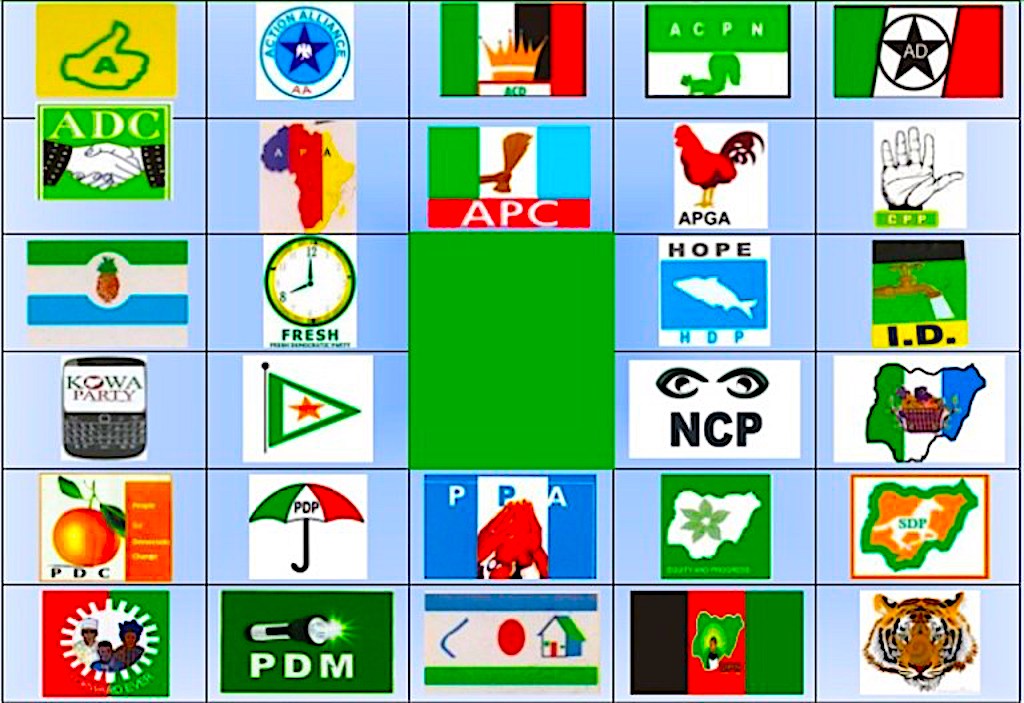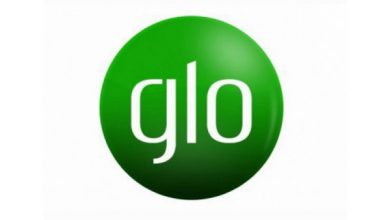List 20 Political Parties in Nigeria – Functions of Political Parties

The official list of Nigeria’s political parties in 2022: Many Nigerians are fascinated by the names of Political Parties in Nigeria. In this write-up, I plan to create an extensive list of major political parties in Nigeria in 2022. Additionally, I’ll provide an in-depth understanding of Nigeria’s structure for political parties.
We present to our readers the complete list of all political parties that have been registered and legitimate by the Independent National Electoral Commission in Nigeria (INEC)
In Nigeria, what number of political parties are available? There are currently 91 parties in the country, but before we dive into that, let’s clarify specific terms.
What Is a Political Party?
According to Britannica, Political parties first emerged in their current form in Europe and the United States in the nineteenth century, and also parliaments and electoral systems developed in conjunction with political parties. They are described as people who have joined forces to achieve and control political power. In a more straightforward definition, a political group is a group of similar individuals who band together to take on office and control the power of the government.
The primary goal of a political organization is to let its candidates contest elections and win them. The three types of political parties are three kinds of the political party they are
- Ideological parties
- Class events and
- Mass parties.
Most political parties are constantly surrounded by party opposition or rivals, which creates an argument and a struggle to gain power.
Political parties also have their roles in society. Engaging the masses and teaching the masses are among their duties.
Liste of political parties in Nigeria before independence
- Nigerian National Democratic Party (NNDP)
- National Youth Movement (NYM)
A list of the political parties that existed within Nigeria in the First Republic (1960 from 1960 to 1966)
- National Council of Nigeria and Camerouns (NCNC)
- Action Group (AG)
- Northern People’s Congress (NPC)
- United National Independent Party (UNIP)
- Northern Elements Progressive Union (NEPU)
- United Middle Belt Congress (UMBC)
- Dynamic Party (DP)
- Niger Delta Congress (NDC)
- Lagos United Front (LUF)
- Nigerian National Alliance (NNA)
- United Progressive Grand Alliance (UPGA)
- Bornu Youth Movement (BYM)
The list of political parties in Nigeria throughout the Second Republic (1979 between 1979 and 1983)
- National Party of Nigeria (NPN)
- United Party of Nigeria (UPN)
- Nigeria Peoples Party (NPP)
- Great Nigeria Peoples Party (GNPP)
- Peoples Redemption Party (PRP)
- National Advance Party (NAP)
The list of political parties that were in Nigeria in the Third Republic (1962 to 1993)
- Social Democratic Party (SDP)
- National Republican Convention (NRC)
List of the Political Party in Nigeria during the Abacha Rule Plan. (1996 – 1998)
- Democratic Party of Nigeria (DPN)
- Congress for National Consensus (CNC)
- Grassroots Democratic Movement (GDM)
- National Center Party of Nigeria (NCPN)
- United Nigeria Congress Party (UNCP)
The list of political parties that are in Nigeria (2022)
- Accord (A)
- Action Alliance (AA)
- All Blending Party (ABP)
- Advanced Congress Of Democrats (ACD)
- Allied Congress Party of Nigeria (ACPN)
- Alliance For Democracy (AD)
- African Democratic Congress (ADC)
- Action Democratic Party (ADP)
- AGA All Grassroots Alliance (AGA)
- All Grand Alliance Party (AGAP)
- Alliance for New Nigeria (ANN)
- Abundant Nigeria Renewal PARTY (ANRP)
- African Peoples ALLIANCE (APA)
- All Progressives Congress (APC)
- Advanced Peoples Democratic Alliance (APDA)
- All Progressives Grand Alliance (APGA)
- African Peoples Party (APP)
- Better Nigeria Progressive Party (BNPP)
- Coalition for Change (C4C)
- Democratic Alternative (DA)
- Democratic Peoples Congress (DPC)
- Democratic Peoples Party (DPP)
- Freedom and Justice Party (FJP)
- Fresh Democratic PARTY (FRESH)
- Grassroots Development Party of NIGERIA (GDPN)
- Green Party of Nigeria (GPN)
- Hope Democratic Party (HDP)
- Independent Democrats (ID)
- Justice Must Prevail Party (JMPP)
- Kowa PARTY (KP)
- Labour Party (LP)
- Legacy Party of Nigeria (LPN)
- Mass Action Joint Alliance (MAJA)
- Modern Democratic PARTY (MDP)
- Masses Movement of Nigeria (MMN)
- Mega Progressive Peoples Party (MPPP)
- National Action Council (NAC)
- National Conscience Party (NCP)
- Nigeria Democratic Congress Party (NDCP)
- National Democratic Liberty Party (NDLP)
- Nigeria Elements Progressive Party (NEPP)
- New Generation Party of Nigeria (NGP)
- National Interest Party (NIP)
- New Nigeria Peoples Party (NNPP)
- Nigeria Peoples Congress (NPC)
- New Progressive Movement (NPM)
- National Rescue Movement (NRM)
- National Unity Party (NUP)
- People’s Alliance for National Development & Liberty (PANDEL)
- People For Democratic Change (PDC)
- Peoples Democratic Movement (PDM)
- Peoples’ Democratic Party (PDP)
- Progressive Peoples Alliance (PPA)
- Providence People’s Congress (PPC)
- Peoples Party of Nigeria (PPN)
- Peoples Progressive Party (PPP)
- Peoples Redemption Party (PRP)
- People’s Trust (TP)
- Re-build Nigeria Party (RBNP)
- Restoration Party of Nigeria (RPN)
- Social Democratic Party (SDP)
- Sustainable National Party (SNP)
- Socialist Party of Nigeria (SPN)
- UDP United Democratic Party (UDP)
- UPN Unity Party of Nigeria (UPN)
- United Progressive Party (UPP)
- Young Democratic Party (YDP)
- Young Progressive Party (YPP)
Roles of Political Parties in Democracy
One of the most important responsibilities that any political organization in a democracy is to guarantee freedom of speech. A nation should give its citizens the right to vote, or be elected. Another important role of an political party is to act as an agent for the citizens. Each political party is run in accordance with the needs of the nation’s citizens.
The importance of a party in any country should not be overestimated. They constitute the political movement that drives any decision taken in the country. If there’s a political party within the country, it is a sign of that the government is elective. government.
A party system is founded on the notion that people are rational beings who can exercise their desires and wishes through political parties. Remember that a nation’s political parties are the representatives of the people represented by them. Otherwise, it’s the equivalent of a dictatorship.
Many countries worldwide have a multi-party system where more than one political party could exist. Some countries have one or two-party systems. But regardless of how many parties are in a particular country, they are required to fulfill their primary duties.
Functions of Political Parties
No democracy could exist anywhere in the world with no political party. Nigeria is among the most democratic nations around the globe. It was only declared independent during the early 20th century. A political party is an element of our procedure as Nigerians. Let’s examine the primary roles of a political organization in Nigeria:
They aid the ParliamentParliament:
Each ParliamentParliament of any nation is comprised of people’s representatives. Political parties are organized to represent the citizens. The voters choose the representatives of these parties to be their representatives in ParliamentParliament. The party with the most significant number of votes will be the dominant party within the legislative body. The party that failed to gain the vote is now the opposition. The opposition ensures that it is committed to the international and national work and the work of the state. There should be no abuse of control by the dominant party if the democratic system is functioning correctly.
The formulation of public policies:
Every single party is fighting for the acceptance of its political principles. So, when people pick the party that will represent them in the ParliamentParliament, they select the principles of the party to present to the nation. Therefore the policies adopted by the political party must reflect the most significant benefit for those who chose the party. Policies should aim toward improving the situation of the nation.
Education:
Political parties need to inform the public. Citizens must be aware of the ideology of the political parties and the government. Every political party must help to increase the political awareness of the population. This is among the primary roles of political parties in the democratic system. If the political party is driven by an intention to be more a part of the community, it must provide information and inform the public about the purpose of the organization.
Stability function:
Political parties bring people together in the country. They are a force for the principle of patriotism as well as unity within the nation. The political parties are a uniting force for all goals. A country’s citizens may be divided by religion, region, or national issues. Thus, any political group must address societal differences and encourage unity.
Leaders’ recruitment:
Another advantage of any political organization is the way they recruit leaders. They search for people who are active and keen on the direction of their nation. They look for the leaders among them and offer them an opportunity to be heard. Recruiting leaders in politics is among the primary tasks of party politics in Nigeria.



